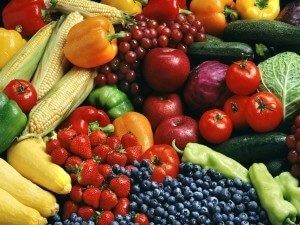Superfoods Boost your Health

Hardly a week goes by without a new study touting the health benefits of some food or beverage. Recently the word “superfood” has emerged as a label for an assortment of foods that help boost our health. What are some of these foods and why are they so super?
Most superfoods are in the fresh fruit, vegetable, fish and grain families. These foods go above and beyond basic nutritional benefits and each contains several nutrients. The Mayo Clinic categorizes superfoods as those that meet three or more of the following criteria:
- Excellent source of fiber, vitamins, minerals and other nutrients.
- High in plant nutrients (phytonutrients) and antioxidant compounds, such as vitamins A and E and beta carotene. Antioxidants protect cells from damage caused by unstable molecules called “free radicals,” which have been linked to cancer, cardiovascular disease and Alzheimer’s disease.
- Low in calorie density: bigger portions with fewer calories.
- Readily available to consumers.
Below are some common superfoods and their nutritional benefits:
Quinoa (pronounced keen-wa) is the new health rage, but is actually an ancient grain. Cooked quinoa has a fluffy, slightly crunchy texture and is a tasty, gluten-free substitute for rice or pasta. Quinoa is a complete protein, containing all nine essential amino acids needed for building muscles. It also is a good source of the antioxidants manganese and copper, as well as magnesium, which can relax muscles and blood vessels.
Sweet Potatoes are rich in fiber and high in the antioxidant beta carotene, which is converted to vitamin A in the body. Vitamin A may assist in slowing the aging process. Sweet potatoes are a good source of fiber, vitamin C (for growth and repair of tissues), vitamin B-6 (keeps skin moisturized and helps regulate metabolism) and potassium. They are fat-free, filling and low calorie.
Fatty Cold-Water Fish, such as wild salmon, contain monounsaturated fats, omega-3 fatty acids and protein. Monounsaturated fats are good fats that help lower cholesterol, reduce heart disease and stroke, and minimize illnesses linked to inflammation, such as lupus and arthritis.
Blueberries are an excellent source of vitamin C, essential to the formation of collagen, which connects and supports our body’s tissues, including skin, bone, tendons and cartilage. Blueberries are high in dietary fiber, which promotes digestive health and are an excellent source of manganese for bone development.
Almonds provide phytonutrients and are high in monounsaturated fat, which can help lower cholesterol. Bursting with nutrients, almonds contain fiber, riboflavin, magnesium, iron and calcium. One serving (about 23 almonds) also provides 15% of the Recommended Dietary Allowance (RDA) of vitamin E, a powerful antioxidant that helps keep blood vessels clear of fatty plaques.
Other superfoods include apples, beans, broccoli, pumpkin, spinach, walnuts and yogurt. These foods are super easy to incorporate into many meals: try yogurt sprinkled with almonds for breakfast or a super simple dinner of grilled salmon, baked sweet potato and broccoli. Superfoods will give your diet a healthy boost!

